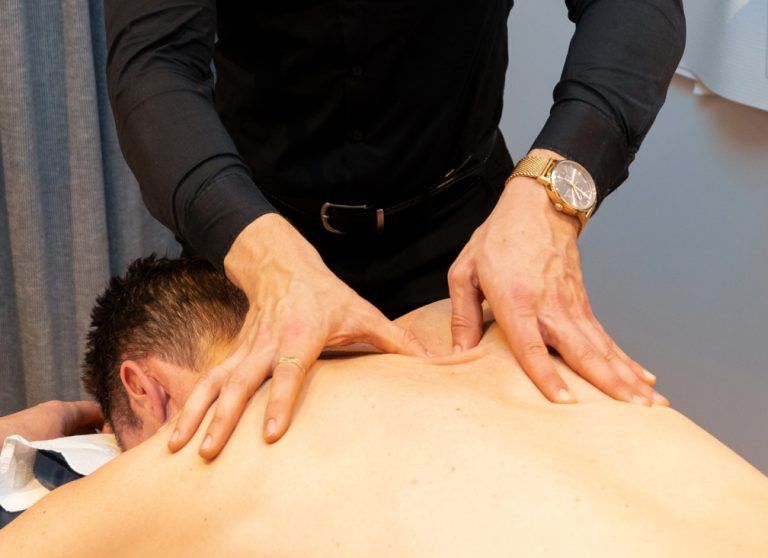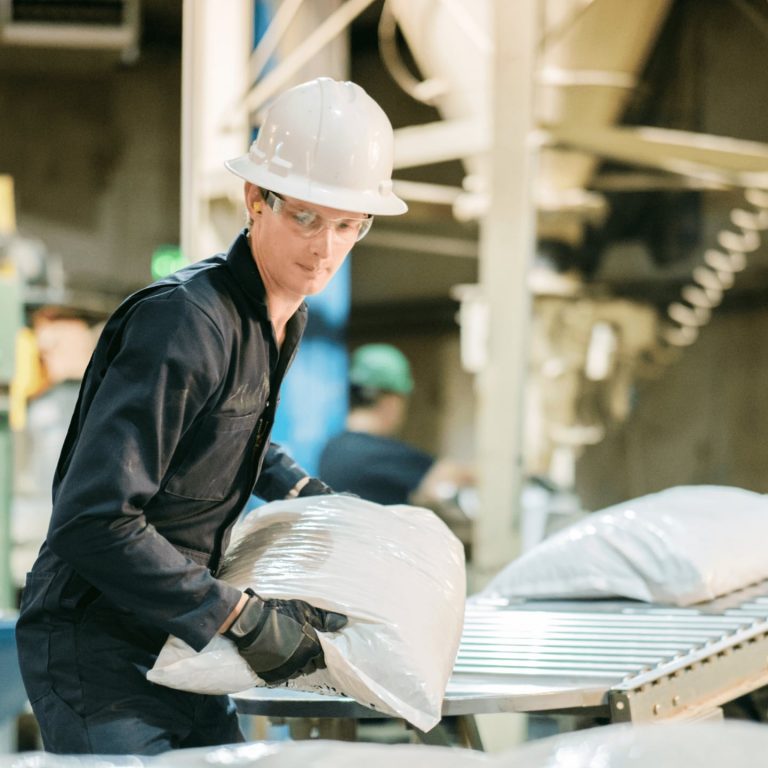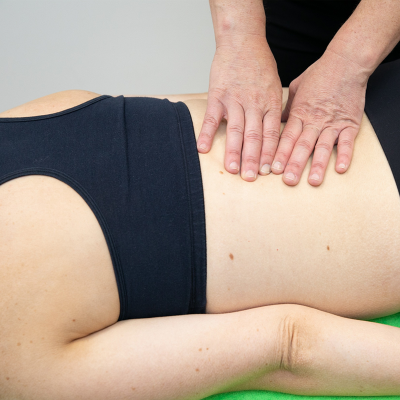Effective Physio for Back Pain Relief

Back pain can be debilitating. It’s one of the most common reasons people miss work, or see a physiotherapist. It is often mechanical, meaning specific muscles and bones, including vertebrae, ligaments, nerves and spinal discs produce the pain.
Back pain can also be inflammatory, in which case medication such as ibuprofen (Nurofen) or diclofenac (Voltaren) may help to manage your symptoms.
Whatever your age and level of fitness, many people experience back pain. The back is a complex, nerve rich structure. Our treatments include manipulation, mobilisation, remedial massage, stretching, dry-needling, and taping.
Our team minimise the chances of the injury returning with long-term solutions. Which is why postural re-education and rehabilitation exercises are an important part in our process.
Do you need treatment?
Book now
Causes of back injury
There are a number of risk factors that may cause you to experience back pain. This can include:
- Lifting heavy items.
- Repeated lifting related to your occupation, sport or hobby.
- Weight gain.
- Maintaining poor sitting or standing postures.
Some examples of back injuries include joint sprains, muscle strains, disc injuries and nerve irritation. It could be a direct outcome from an accident, or from lifting something heavy. However, sometimes back injuries develop in a more gradual way as a result of ongoing, repetitive stress on your back.

Common symptoms of back injury
Depending on the cause of your back pain, you may experience:
- Dull, constant, sharp, or shooting pain. It is often experienced between the lower ribs and waist.
- Pain, pins and needles, numbness or muscle weakness into your legs. These symptoms are often related to back injury involving nerve irritation.
- Stiffness in your lower back. When this happens, you may find this limits your movements involving bending, sitting or standing.

Our approach to back treatment
Sometimes, the cause of back pain can be directly connected with a specific structure or disease. We often find that more than one structure is typically at fault, which can lead to a range of complex issues.
Our physiotherapists have the skills and facilities to create a comprehensive treatment program tailored to meet your unique needs. This helps us establish if your back pain is mechanical in nature. We can also rule out other conditions that require additional testing and treatment.
Through a combination of careful analysis, assessment and treatment, we can identify your issue and any associated knock-on effects. From here, we can work towards alleviating your pain and minimise the chance of recurrence.

Back conditions we treat
Our physiotherapists can help confirm if your back pain is mechanical in nature. We can also rule out other conditions that require additional testing and treatment. Once diagnosed, you will receive advice on recovery time, posture, workstation ergonomics, and what you should and shouldn’t do. You’ll also be guided with an exercise program on how to best return to your daily activities.
Some examples of back injuries we treat include:
- Post-surgical rehabilitation.
- Disc prolapse, injury or strain.
- Stiffness and loss of mobility.
- Facet joint dysfunction.
- Postural dysfunction (with sitting, standing or both).
- Acute muscle or ligament sprains and strains.
- Osteoarthritis.
- Leg pain referring from the back.

When should I see a physiotherapist?
The earlier we can diagnose your condition and begin treatment, the sooner you can return to your normal healthy self. If left untreated, your symptoms may progress, causing further lifestyle restrictions and a longer recovery period. Speak with our experienced team if any of these symptoms sound familiar to the pain you are experiencing.
Get in touch to book an appointment now.
Book now